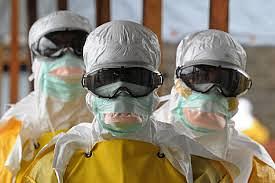Ebola: Still Not Winning Fight Against Outbreak
West Africa has seen thousands of people die because of the Ebola outbreak, and current statistics show that the disease is still running ahead all efforts to contain it. This report came straight from the World Health Organization, as the Director General Margaret Chan said that some parts of the country are still struggling to control the outbreak.
The parts of the country that were worst affected have not cleared up, but we have seen significant improvements, yet the disease is still running rampant in the country. The risk for the rest of the world is still ever present as this outbreak in Africa continues. The reaction by some countries in guarding against further spread has not been stringent enough.
In Guinea, Sierra Leone and Liberia, the death toll has reached 6,331, and over 17,800 people have been infected. The capital of Liberia and Lofa county are only just managing to contain the outbreak, and in Sierra Leone and Guinea there are still more cases emerging, which is worrying since the spread was deemed less severe just a few months ago.
Dr Chan is hoping to bring the number of new cases down to zero, but it requires vigilance and a high degree of diligence, as the infection could rear up again very quickly if all suitable controls and measures are not taken. Blog posts on this matter may be found on this article marketplace.
What makes it more difficult is the fact that a great many cases of Ebola death and sickness are not being reported. This is then reflected in the official figures, which now show only a portion of the Ebola problem. The official figures do not give an entire view of the outbreak, with some educated estimates suggesting the official numbers are "vastly under-estimated."
In order to contain the outbreak and get a genuine view of the situation, the WHO has been sending teams into African communities with the hopes of informing people about the virus, yet some have been attacked by frightened communities. Some have even been hiding their sick, dying and dead for fear that the medical teams will take them away and never return them. This has lead to further outbreaks that occur in frightening numbers as one or two ill people unwittingly have their loving families spread the disease through the village because they are being infected as they provide care.
In cases where communities do not submit to the actions of the WHO medical teams, we are seeing outbreaks that spread through a village in just a few days. In cases where family members were hidden, the WHO has been criticized as not taking thorough action, though few report that some teams were attacked as they tried to help.
When the virus first became apparent, there were few people that knew what it was. It was traced back to a child called Emile. He died in Guinea in December 2013, and the local populace had no idea they had Ebola in their midst. The part of the country that was affected had no health facilities, and since the virus had not been seen in West Africa, there were few people able to diagnose it, and even fewer that believed it could be Ebola in the first place.
It was only in March, after fifty people had died that an outbreak was declared. It was only on the 8th of August 2014, that the WHO announced it was a global health emergency.
Part of the reason it took so long for the WHO to become worried was because cases of Ebola were not being reported, and there was still doubt in small communities that Ebola was actually the cause of all the illness in the area.
Comments
There are 0 comments on this post













